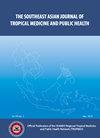Patient-Related Factors Affecting Type 2 Diabetes Medication Non-Adherence: A Comprehensive Review of BMI, Knowledge Levels, Treatment Concerns, and Self-Efficacy
IF 0.1
4区 医学
Q4 INFECTIOUS DISEASES
Southeast Asian Journal of Tropical Medicine and Public Health
Pub Date : 2023-09-20
DOI:10.9734/ajmah/2023/v21i11918
引用次数: 0
Abstract
The persistent issue of non-adherence to medications in patients diagnosed with type 2 diabetes has far-reaching implications, affecting not only the health outcomes for individual patients but also exacerbating the overall financial burden of healthcare systems. This article aims to provide a comprehensive review of a spectrum of factors that influence adherence to diabetic medications, thus extending the discourse beyond a mere attribution of responsibility to patients. In particular, the study looks at how factors like BMI, disease knowledge, treatment worries, and self-efficacy are linked to non-adherence. The review substantiates that deficits in disease-specific knowledge and lower levels of self-efficacy are significantly correlated with medication non-adherence. Concurrently, elevated BMI values and apprehensions regarding treatment were also found to have an adverse effect on adherence, although the magnitude of their influence was comparatively less pronounced. Consequently, the incorporation of these identified variables into customised treatment regimens is strongly advocated. Interventional strategies, such as educational modules designed to enhance the understanding of the disease, coupled with psychological support mechanisms aimed at elevating self-efficacy, emerged as viable solutions to the persistent issue of medication non-adherence. Moreover, pre-emptively addressing concerns related to treatment options and accounting for BMI when prescribing medications offer additional pathways to improve medication compliance rates. The paper reinforces the imperative for a multidimensional patient-centered healthcare model. By meticulously identifying and addressing the multifaceted factors that contribute to medication non-adherence, healthcare practitioners could optimise health outcomes, mitigate complications, and thus effectuate substantial reductions in healthcare costs associated with type 2 diabetes.影响2型糖尿病药物依从性的患者相关因素:BMI、知识水平、治疗关注和自我效能的综合评价
诊断为2型糖尿病的患者持续不坚持药物治疗的问题具有深远的影响,不仅影响个体患者的健康结果,而且加剧了医疗保健系统的整体经济负担。本文旨在全面回顾影响糖尿病药物依从性的一系列因素,从而将论述延伸到患者责任的单纯归因之外。该研究特别关注了BMI、疾病知识、对治疗的担忧和自我效能感等因素与不坚持治疗的关系。该综述证实,疾病特异性知识的缺失和较低的自我效能水平与药物不依从性显著相关。同时,BMI值升高和对治疗的担忧也对依从性产生不利影响,尽管其影响程度相对不那么明显。因此,强烈提倡将这些已确定的变量纳入定制治疗方案。干预战略,如旨在加强对疾病的了解的教育模块,加上旨在提高自我效能的心理支持机制,成为解决长期不坚持服药问题的可行办法。此外,在开药时,先发制人地解决与治疗方案有关的问题,并考虑到BMI,为提高服药依从率提供了额外的途径。本文强调了以患者为中心的多维医疗保健模式的必要性。通过仔细识别和解决导致药物不依从性的多方面因素,医疗从业者可以优化健康结果,减轻并发症,从而有效地降低与2型糖尿病相关的医疗成本。
本文章由计算机程序翻译,如有差异,请以英文原文为准。
求助全文
约1分钟内获得全文
求助全文
来源期刊

Southeast Asian Journal of Tropical Medicine and Public Health
PUBLIC, ENVIRONMENTAL & OCCUPATIONAL HEALTH-INFECTIOUS DISEASES
CiteScore
0.40
自引率
0.00%
发文量
0
审稿时长
3-8 weeks
期刊介绍:
The SEAMEO* Regional Tropical Medicine and Public Health Project was established in 1967 to help improve the health and standard of living of the peoples of Southeast Asia by pooling manpower resources of the participating SEAMEO member countries in a cooperative endeavor to develop and upgrade the research and training capabilities of the existing facilities in these countries. By promoting effective regional cooperation among the participating national centers, it is hoped to minimize waste in duplication of programs and activities. In 1992 the Project was renamed the SEAMEO Regional Tropical Medicine and Public Health Network.
 求助内容:
求助内容: 应助结果提醒方式:
应助结果提醒方式:


